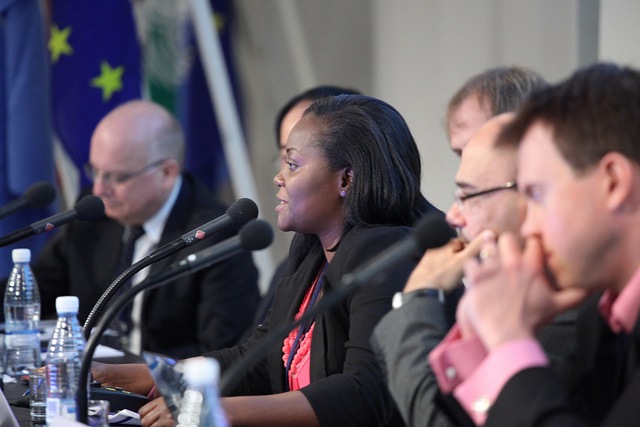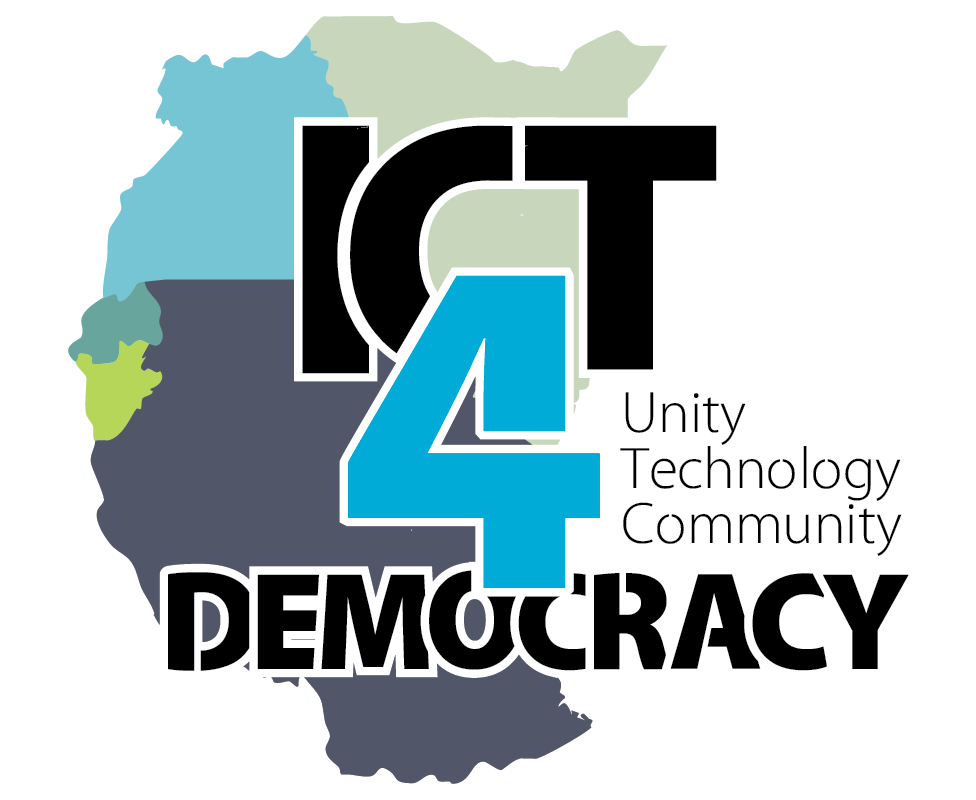By Lillian Nalwoga
At the end of May, Finland hosted an international conference to discuss ways of improving eGovernment programmes. In particular, the conference attended by Government Chief Information Officers (CIO) and other officials from across the world reviewed the role of leadership in e-government development.
While noting immense advancements in eGovernment, particularly in the European Union (EU), delegates at the ‘Leading the way in eGovernment development’ conference highlighted numerous factors hampering effective implementation of eGovernment strategies both in developed and developing countries.
According to a May 28, 2013 European Commission press release (see: ‘eGovernment improving but citizens ask for more), almost half (46%) of EU citizens go online to look for a job, use the public library, file a tax return, register a birth, apply for a passport or use other eGovernment services. In addition, 80% indicated that using online public services saves them time, while 76% like the flexibility of the services and 62% said they save money when they use e-services.
Despite these positives, European governments still believe that public perception of governments and public institutions is still low and likely to worsen, stated the press release. Factors cited as constraining eGovernment included: inadequate capacity by some CIOs to implement eGovernment strategies, inadequate trust citizens have in some eGovernment systems, ineffective technological systems, inadequate open, transparent and collaborative efforts by governments, and limited availability of cross-border eGovernment services. According to the UN eGovernment survey 2012, for Africa and other developing regions, the above realities, in addition to the lack of e-infrastructure, mean that eGovernment remains at an elementary level.
Paul Timmers, Director of the Sustainable and Secure Society Directorate, DG Connect at the European Commission, noted that these challenges can be solved by governments’ smart use of new Information Communication Technologies (ICTs), adopting new processes and skills sets. In agreement, Ms. Henna Virkkunen, Finland’s Public Administration Minister, noted that ICT is a key element of every government task and new ways of using latest technology like cloud computing must be explored. Nonetheless, she cautioned that ICT should not be an end itself. Governments need to find ways to use inclusive technology in a manner that benefits them and their citizens, as citizens are demanding for better, user friendly and practical e-services.
In addition, governments also need to include third party users in the design, development and delivery of e-government services such as open data. Mr. Timmers remarked that the “market value of Open Public Data” in EU countries alone is estimated at 140 billion Euros. According to the Open Government Partnership, the market value of Open data can be realised in three main channels – business innovation (making scientific research works more accessible hence driving innovation capacity in fields such as pharmaceutics and renewables); business creation (creating a new market as business can build new innovative applications and eServices based government data); and business efficiency (business and public bodies contributing to ‘smart’ growth by becoming more efficient in tackling citizens’ and customers’ needs by gaining precise and completer insight into citizens’ and customers’ preferences and needs).
But how do governments build positive perceptions of their citizens toward eGovernment? Ian Goldin, Director of the Oxford Martin School and Professor of Globalisation and Development at Oxford University, stated that in order to achieve this, governments have to build trust in the systems; address user privacy concerns; play a stronger role in regulatory frameworks; involve youth and the elderly in digital government and invest in latest technologies as older ones become difficult to work with.
Besides advancements in eGovernment, conference delegates discussed global related concerns such as openness and freedom on the internet as well as data protection. They called for immediate government attention to protecting citizens’ rights while considering the opportunities and benefits of private sector companies that provide online services in the “networked” era where multi-national players like Google, Facebook, Twitter, Amazon, and Yahoo have their own rules on how to handle customer data.
Further, the conference called for common efforts in capacity building for e-government development; sharing best practices to learn from each other; strengthening ethical behaviour in governments to pave way for a culture of openness and the adoption of political will in practicing openness. Other suggestions included the EU issuing directives to all its member countries to open up public data as well as the UN adopting a global framework on promoting openness.
The conference, which took place on May 28–30, 2013, was organised by the United Nations Department of Economic and Social Affairs (UNDESA) and Finland’s Ministry of Finance in collaboration with the European Commission.
More information about the conference is available here.
Africa Internet Summit Opens Next Week in Zambia
Taking it to the Summit: AFRINIC and AfNOG to host the 1st Africa Internet Summit – AIS’13 – from 9-21 June 2013 in Lusaka, Zambia
The much-awaited Africa Internet Summit (AIS) will be held in Lusaka, Zambia, on 9-21 June. The meeting will be held at the InterContinental Hotel in Lusaka, Zambia. The focus this year will be the role and impact of the Internet in African development. The brainchild of AFRINIC, the Regional Internet Registry for Africa, and the African Network Operators’ Group (AfNOG), the Africa Internet Summit is the premier multi-stakeholder event combining conference, training and networking for the Internet industry. The annual summit attracts internationally renowned speakers to share knowledge and experiences on technology developments, changes, uses and effects. Experts from different sectors, both public and private, ICT Industry leaders and technical experts including Internet Service Providers (ISP), government, regulators, academia, business, civil society, and interested groups, among others are expected to attend this major event. It is a great opportunity for networking among peers and businesses.
The AIS addresses the current and future needs of operators from the ICT industry. It is open to members and entrepreneurs in ICT, the business community and civil society. The AIS is focused on popular and emerging ICT industries such as mobile telephony and its impact around the world. It is the ideal platform for networking and keeping abreast with cyber security. “While the Internet will remain at the centre of the discussions, workshops and various meetings, the event will also deal with other important matters relating to emerging technologies, particularly mobile telephony, their use, and how they can contribute to both social and economic development in Africa. The forum thus aims at meeting the ever-changing expectations of the ICT Industry and goes beyond core IP engineering to integrate the real world use and impact of IP technologies. The AIS includes sessions that cover business and technical aspects of the Internet: Policy, Content and Names, Internet Numbers, Research, Infrastructure, Capacity building, and Security” says Adiel Akplogan, the CEO of AFRINIC.
Please contact Mrs Vymala Thuron [email protected] if you require any more information or have any questions.
For more information on the Summit please visit our websites: http://www.internetsummitafrica.org/
Internet Freedom: Should Africa Prioritise Access or Security?
By CIPESA Writer in Stockholm
An interesting conversation is taking place in the Swedish capital Stockholm. At the Stockholm Internet Forum (SIF), which is being watched online by audiences around the world, a journalist with Uganda’s Daily Monitor newspaper asked a question that is central to much of the debate here. Should people in his country be concerned about the so-called internet rights when majority of them do not even have access to the internet, and when big numbers of them lack access to clean water? As the journalist addressed a global audience of online rights activists, back home his newspaper, the two radio stations it runs, and another independent newspaper (The Red Pepper), remained shut down for a fourth day. Under the guise of searching for a document allegedly authored by the head of Uganda’s intelligence services, which President Yoweri Museveni’s government deemed a threat to national security. The police ransacked and cordoned off the media houses. Their computers and servers were being searched; the radio transmitters switched off despite a court order for the security agencies to vacate the media premises.
However, his concerns rhyme with concerns from other participants at the forum. Questions such as, should developing countries prioritise giving access to the internet to more of their citizens or should they instead dwell on improving security and privacy for current internet users?, were at the center of the discussions.
For many of the participants from Africa who spoke to CIPESA, access to the internet remains a key concern on the continent. Only a fraction of people on the continent are users of the Internet (estimated at 15% of the continent’s population). But user numbers are rising fast, driven by increased availability of affordable marine fibre optic bandwidth, a rise in private sector investments, the popularity of social media and innovative applications, not forgetting an increased use of the mobile phone to access the internet.
But as more Africans are getting online, more African governments are moving to curtail online freedoms using both legal and non-legal means. The pity, said the African observers, was that there was little understanding in African countries of the need to protect and to promote these internet rights and freedoms. More so, in most countries there were few actors talking about these matters and creating awareness about the citizens’ right to seek, receive and impart information and ideas through digital technologies.
But back to the question: should African countries priorities access or security? “It is important when you talk of the internet not to think of it chronologically,” said Ross LaJeunesse, Global Head of Free Expression and International Policy at Google. “The internet as we know it is supposed to be free and open… you would be doing a disservice to people if you offer it otherwise.” Anja Kovacs of the Internet Democracy Project in Delhi, India, agreed: we do not need to get everyone online before we start thinking of making it secure for people to be on the internet. “Security has to come at the same time as access,” said Kovacs.
Protecting internet freedoms is becoming of growing interest to academics, human rights activists and media worldwide, including in developed countries, where some governments are using the excuse of fighting cybercrime to limit citizens’ online freedoms. Ron Deibert, head of the Citizen Lab at the University of Toronto, Canada, has led a 10-year research into this issue, and on Tuesday, May 21 launched a well-received book, Black Code in which he contends that the internet’s original promise of a global commons of shared knowledge and communications is now under threat.
Intelligence agencies that were less accountable are taking over aspects of monitoring internet freedoms. Meanwhile, citizens are placing a growing amount of data into the hands of private companies which are increasingly being asked to monitor the internet. Worryingly too is that most of the new users are coming from countries with fragile democratic systems, where internet rights could more easily be trampled.
These concerns/fears are also being investigated by CIPESA under the OpenNet Africa Project. The project is monitoring internet freedoms in a number of African countries such as Ethiopia, Kenya, Rwanda, South Africa and Uganda. We are documenting internet rights violations and reviewing cyber security policies and legislations in these countries to see how they enhance, or undermine, internet freedom.
More on SIF: http://www.stockholminternetforum.se/
Follow on twitter: @sif13
ICT4Democracy in East Africa Workshop Proceedings
Eighteen months since the ICT4Democracy In East Africa Network’s inception, a workshop was convened in Dar es Salaam, Tanzania to review the work being done by the partners, and to discuss the sustainability of the initiatives and the network.
Partners in the network are the Collaboration on International ICT Policy for East and Southern Africa (CIPESA), the Commission for Human Rights and Good Governance (CHRAGG) of Tanzania, iHub Research (Kenya), the Kenya Human Rights Commission (KHRC), Toro Development Network, Transparency International Uganda, and the Women of Uganda Network (WOUGNET). The partners are leveraging ICTs to hold leaders accountable to citizens, as well as to fight corruption, monitor service delivery, and contribute to building a democratic culture.
Read the full workshops proceedings here.
Africa Counts RoundTable Comes to Kampala
Open Data for improved resource allocation and effective service delivery in Uganda was the theme of the latest Africa Counts roundtable held in Kampala, Uganda on March 13, 2013. Organised by Development Initiatives (DI) and Development Research and Training (DRT), it was the fourth in a series of forums aimed at increasing opportunities for “cross-country, cross-sector and multi-stakeholder” engagements that involve citizens in decision making processes on development issues across East Africa.
The forum explored avenues through which open data can be leveraged to influence resource allocation and effective delivery of public goods and considered potential challenges to the operationalisation of an open development platform in Uganda and possible means of dealing with them. Furthermore, it argued the case for the inclusion of ‘open data’ as a stand alone goal in the post-MDG agenda.
DRT’s Paul Onapa commended the government of Uganda for having in place constitutional guarantees to the right to information, as well the Access to Information Act of 2005.
However, he said, despite having a robust legal framework, access to public information remained limited. “Public data and information management schemes are still largely paper based (available in bulky hard copies and/or online PDFs) and largely aggregated. In addition, this information is scattered in various government departments and only available to a few with adequate contacts,” said Onapa.
He added that open data, with its foundation modelled on digital technology and the internet, offers an opportunity to create a “one-stop portal/platform” where citizens can access, download, and analyse information on matters that affect them, particularly basic services and issues of value for money. With this knowledge, citizens can then meaningfully participate in improving public services.
His remarks were supported by Al Kags of the Open Institute, who stated that a “switched on, participating citizenry” is key to the success of open data as a mechanism for transparency and accountability. The Open Institute has been involved in open government initiatives in Kenya, such as Code4Kenya and africaopendata.org.
Panellists Professor Abel Rwendeire of the National Planning Authority and Margaret Kakande from the Ministry of Finance, Planning and Economic Development) acknowledged the potential of open data to ensure effective resource allocation and service delivery. However, Kakande pointed to a number of challenges being faced by government bodies in embracing open data, such as a lack of legal frameworks on data disclosures.
Edward Ssenyange of the Democratic Governance Facility (DGF) and CIPESA’s Lillian Nalwoga highlighted ways in which citizens’ participation in open data initiatives can be enhanced: placing emphasis on capacity building in the use of ICTs, robust multi-stakeholder engagement (particularly with mainstream media), advocating for key government institutions’ commitment to openness, authenticity and relevance of data.
Currently, a civil society led Open Data platform has been created by the Uganda Open Development Partnership (see OpenDev.Ug and Data.Ug). A key objective is to share development information – on agriculture, education, health, roads sub-sector, etc – and on financial flows including all resource flows to Uganda (aid, domestic revenues, humanitarian assistance, remittances, etc). Making the information accessible and useable by various stakeholders – citizens, government officials, donors, civil society, media and private sector is another objective. CIPESA and DRT are among the founders of the Uganda Open Development Partnership.
Previous Africa Counts roundtable forums include The prospects of East Africa’s natural resource finds (July 2012, Nairobi, Kenya), The state of social protection in East Africa (October 2012, Nairobi, Kenya) and Progress in the Kenya Open Data Initiative (November 2012, Nairobi Kenya).
Outcomes of the Kampala forum will be used to develop targeted messages to inform policy and to stimulate public demand for openness in the conduct of data/information sharing in Uganda.





